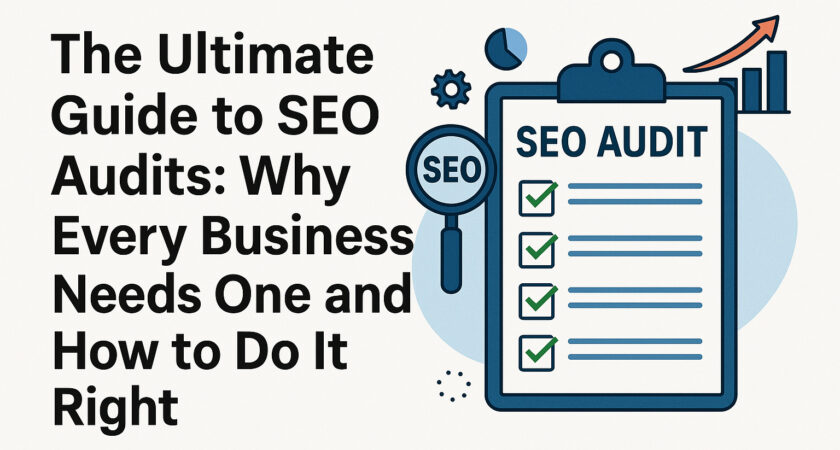It is obligatory today to have a business website, but having a website does not bring things to an end. It should be very well optimized to attract the right audience and to be well ranked by search engines. This is where an SEO audit comes into play. Whether you’re managing it yourself or learning through SEO coaching in Jaipur, understanding how to audit your site is crucial. This is the ultimate guide to what an SEO audit is, why you need it for business growth, and how to perform it properly.
What Is an SEO Audit?
An SEO audit is a detailed check of the total performance of the website on search engines. It shows what might be wrong with your site if ranking, user experience, or visibility are affected. An SEO audit covers everything: your pages’ technicality, content quality, and gives the complete roadmap to improving these as well as obtaining better search engine optimization and higher placement.
Why Do You Need an SEO Audit?
Visibility Boosts:
An SEO audit ensures that your site is continually visible in search engines like Google. By fixing and identifying issues, it boosts the chances that your site will rank highly.
Improved Experience:
A good SEO audit improves the experience speed of a site, navigation, responsivity, and overall user experience with the site, all of which lead to better user engagement and conversion.
Uncovers Hidden Issues:
It finds problems that hide broad ranges of problems from the naked eye. Examples are broken links or duplicate content, missing meta descriptions, and all. An SEO audit reveals these and suggests remedies to them.
Stay Ahead in Competition:
Giving regular audits helps your understanding of what is rightly done in competitors. You can learn their website and strategies to be able to modify your approach to compete with them better in search rankings.
Key Components of an SEO Audit
Some of the important areas that an effective SEO audit will cover could be:
On-page SEO:
This includes the site’s content, meta tags (title tags, meta descriptions), keyword use, as well as the internal linking structure on your site. All these should be optimized for search engines to crawl and index pages easily.
Technical SEO:
This refers to the backend of the online site. Main components are the speed of the site, crawl errors, mobile optimization, as well as the HTTPS security of your site. All these are behind-the-scenes aspects of what the search engines use to grade a site.
Analysis of the Backlink:
Backlinks from reputable sites are the most important ranking factor. An SEO audit would therefore check how well your backlinks appear in terms of quality and quantity so that you could identify the toxic links that are likely to hurt your ranking.
Mobile optimization:
It is now mandatory that your site be optimized for these devices, as people’s increasing uses would now most likely come from a mobile device. An audit would ensure that your site was mobile responsive and loading correctly on all devices.

How to Implement an SEO Audit
SEO Equipment: The list is endless:
From Google Search Console, SEMrush, and Ahrefs to Moz, all of which help with the automation of most processes that an SEO audit is about.
Site Structure Analysis:
Scan for broken links; check for 404; navigate your way through the internal hierarchy of the site. A well-built site is easy for users and even search engines to find content.
Reviews on Content and Keywords:
Make sure that the content is not only relevant but also very good in terms of the keywords it carries. Optimize page titles, headings, and meta descriptions.
Check Mobile Usability:
Google Mobile-Friendly Test will enable you to check your website’s mobile optimization; this is critical under mobile-first indexing for effective SEO.
Backlinks Monitoring:
With respect to a healthy link profile, analyze backlinks. Disavow toxic or spamming links immediately.
How Often to Conduct an SEO Audit?
It is generally advisable to run an SEO audit twice a year, although it may be more convenient to conduct them more frequently if the website in question is modified often or experiences sudden drops in traffic.
Conclusion
Indeed, there is a regular audit in SEO, not only done once, and it is due for continuous optimizations, competition, and visibility audience interactions into a site. With regular audits done on your website, you are likely to come across problems before they appear, such as that of improving the search engine ranking of traffic, engagement, and conversion. If you learned the importance of continued optimization through the Practical Digital Marketing Class, you would know how important this is. Don’t wait any longer to have your rankings slump! Go for an SEO audit and make money from a successful online business!

